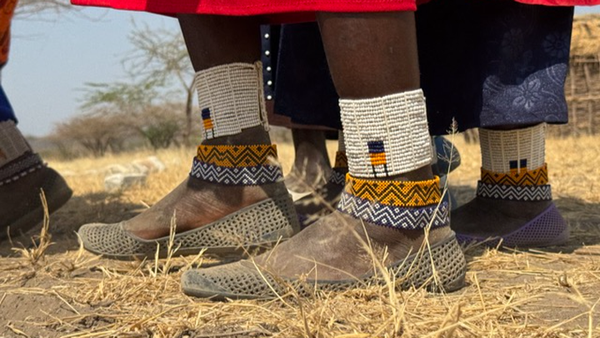If We Want to Avoid Future Pandemics, Then Maybe, Just Maybe, We Should Examine How We Eat
Zoonoses are not a rare occurrence and a good sign we should break up with Big Meat.

Access the Audio Read version of this article directly on Spotify for Podcasters.
“To lessen the risk of future pandemics (and a climate catastrophe), we must come to terms with, and accept, that Big Meat is akin to Big Oil. As the saying goes, however, acceptance is only the first step – we need to develop a society in which meat is viewed in a similar light to fossil fuels.”
As more and more people around the world receive their vaccinations against COVID-19, it feels like an end to the pandemic is finally in sight. Images flash through my mind of a world where masks exist only as dust-covered relics, stuffed haphazardly into a random drawer, entangled in a mess of black and white cables. Life suddenly feels like it’s about to go back to normal, and the sense of freedom that we’re on the cusp of reclaiming is something none of us ever want to give up again. And we won’t have to, until the next pandemic.
Last year, the Intergovernmental Platform on Biodiversity and Ecosystem Services (IPBES) released a special report claiming that “pandemics will emerge more often, spread more rapidly, [and] kill more people” if measures are not taken to prevent them. Already in February this year, a mutant strain of bird flu was found to have infected poultry workers in Russia. This was the first time the strain had been transmitted to a human. Though there was no evidence of human-to-human transmission, Dr Anna Popova told The Guardian that “only time will tell how soon future mutations will allow it to overcome this barrier.”
Despite the relatively happy ending – there were no fatalities, extra pandemics, or zombies – this story highlights how our relationship with animals is a major factor in the spread of new diseases. Like COVID-19, the bird flu mutation is a zoonosis, meaning it originated in an animal and later jumped species. Such diseases are not a rare occurrence: in the last decade, 75% of emerging diseases were zoonotic in origin (source: WHO). HIV, Ebola, SARS, and swine flu, are all examples of zoonoses from recent history.
But the increased frequency of zoonotic diseases is not a chance occurrence. As more species go extinct, the animals that thrive are more likely to host pathogens that are potentially dangerous to humans (Source: Nature). Somewhat ironically, the leading cause of biodiversity loss is the continued breeding of livestock into existence (Source: ScienceDirect). To free up land for farming animals, ancient forests are torn to the ground, and once vibrant fields are cleared, to make room for desolate agricultural landscapes. Beef production alone is responsible for 41% of total deforestation (Source: Our World In Data). In other words – if we, as a society, don’t drastically reduce our intake of animal products, then it is not an if, but a when, the next pandemic will happen.
Let’s be clear though: this is a systemic problem. Governments around the world subsidise animal agriculture, making factory-farmed meat cheap and accessible to consumers. But Big Meat still doesn’t receive the scrutiny it should from the climate movement. New research by New York University found, for example, that the industry spent $750 million on political candidates in the US between 2000 and 2020, in comparison to the energy sector’s $1 billion. Both of these industries are spending similar sums of money on lobbying, but only one – the fossil fuel industry – is widely criticised for skewing the climate narrative.
This, ultimately, gives Big Meat power. After the BBC’s children’s programme Blue Peter encouraged viewers to “go meat-free” as a way of reducing their environmental impact, backlash from the meat industry pressured them into changing their messaging. Would we ever really allow Big Oil to push back against the notion that reducing fossil fuel use is sustainable behaviour?
To lessen the risk of future pandemics (and a climate catastrophe), we must come to terms with, and accept, that Big Meat is akin to Big Oil. As the saying goes, however, acceptance is only the first step – we need to develop a society in which meat is viewed in a similar light to fossil fuels. This will require policy level changes, from government funding for alternative proteins like cultured meat to removing subsidies for destructive industries.
But individuals have a role to play too. Many people don’t want to eat less meat, but new research shows that meat eaters are reluctant to support policies that target factory farming (Source: ScienceDirect). This leaves us at a crossroads as a species, and the path we take will dictate global health for generations. It’s time to reflect – are hamburgers really worth the loss of life and freedom that a pandemic brings? One way or another, we will find out the answer to that question. Sooner, rather than later.





